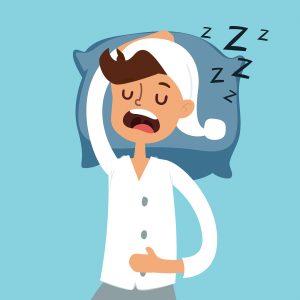
The objective of this study was to estimate the association between sleep quality (SQ) and improvements in low back pain (LBP) and disability, among patients treated for LBP in routine practice. This prospective cohort study included 461 subacute and chronic LBP patients treated in 11 specialized centres, 14 primary care centres and eight physical therapy practices across 12 Spanish regions. LBP, leg pain, disability, catastrophizing, depression and SQ were assessed through validated questionnaires upon recruitment and 3 months later. Logistic regression models were developed to assess: (1) the association between the baseline score for SQ and improvements in LBP and disability at 3 months, and (2) the association between improvement in SQ and improvements in LBP and disability during the follow-up period.
Seventy-three per cent of patients were subacute. Median scores at baseline were four points for both pain and disability, as assessed with a visual analog scale and the Roland-Morris Questionnaire, respectively. Regression models showed (OR [95% CI]) that baseline SQ was not associated with improvements in LBP (0.99 [0.94; 1.06]) or in disability (0.99 [0.93; 1.05]), although associations existed between ‘improvement in SQ’ and ‘improvement in LBP’ (4.34 [2.21; 8.51]), and ‘improvement in SQ’ and ‘improvement in disability’ (4.60 [2.29; 9.27]).
Improvement in SQ is associated with improvements in LBP and in disability at 3-month follow-up, suggesting that they may reflect or be influenced by common factors. However, baseline SQ does not predict improvements in pain or disability. In clinical practice, sleep quality, low back pain and disability are associated. However, sleep quality at baseline does not predict improvement in pain and disability.
No comments:
Post a Comment